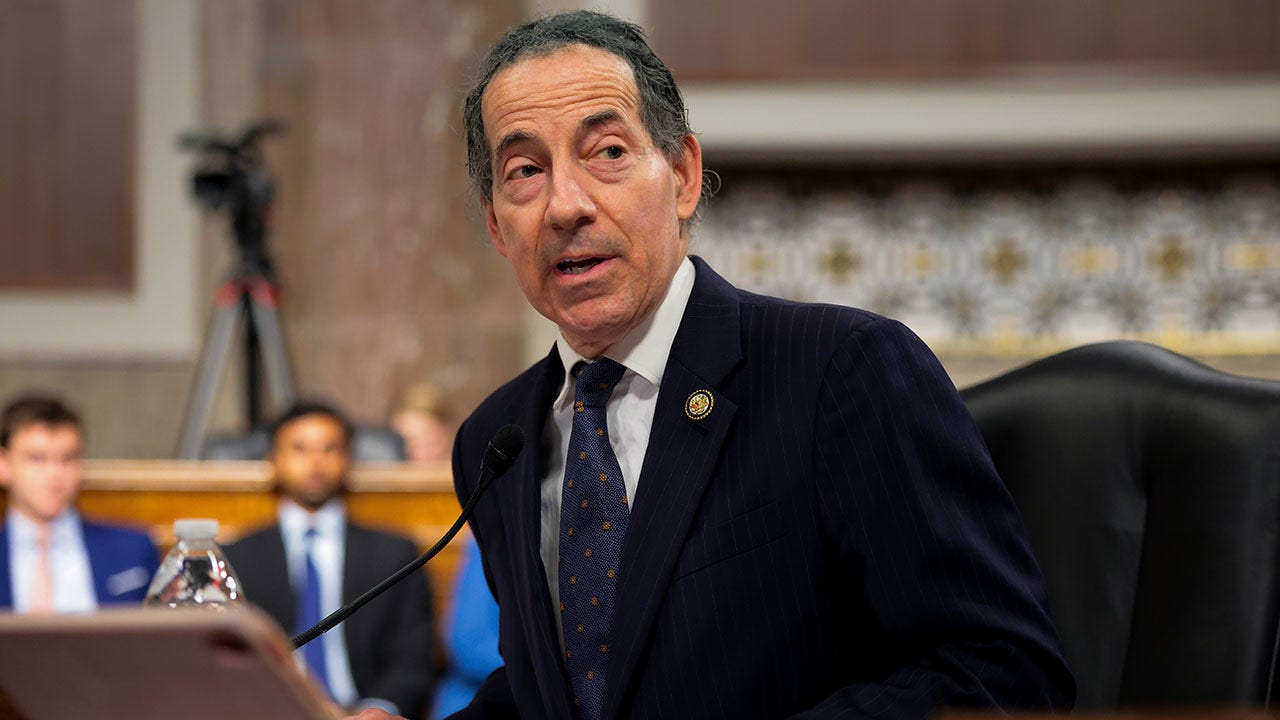Did Democrats Miss the Chance to Subpoena Key Bank Leaders in the Epstein Inquiry?

Published: 2025-09-18 18:34:05 | Category: Trump GNEWS Search
The House Judiciary Committee recently voted against a Democratic effort to subpoena the CEOs of four major banks amid an ongoing investigation into their connections with convicted sex offender Jeffrey Epstein. The inquiry is particularly focused on $1.5 billion in suspicious transactions flagged by the banks, which are believed to be linked to Epstein's criminal activities.
Last updated: 27 October 2023 (BST)
Key Takeaways
- The House Judiciary Committee blocked a subpoena for four bank CEOs linked to Jeffrey Epstein.
- Democrats raised concerns over $1.5 billion in suspicious transactions reported by these banks.
- JPMorgan CEO Jamie Dimon expressed readiness to comply with any legal requirements.
- Epstein's history with JPMorgan raises questions about the bank's oversight and compliance measures.
- The investigation highlights ongoing scrutiny of financial institutions and their roles in facilitating criminal activities.
Context and Background
The inquiry into the financial dealings of Jeffrey Epstein has gained momentum following his conviction and subsequent death. Epstein, a financier with connections to high-profile individuals, was accused of running a sex trafficking ring involving underage girls. His long-standing relationship with major banks, particularly JPMorgan Chase, has come under scrutiny as investigators seek to understand how these institutions handled transactions related to his criminal activities.
Details of the Judiciary Committee's Decision
The House Judiciary Committee's recent decision to block the subpoena reflects a broader political struggle over accountability in financial oversight. Ranking Member Jamie Raskin, a Democrat from Maryland, moved to subpoena Jamie Dimon of JPMorgan Chase, Brian Moynihan of Bank of America, Christian Sewing of Deutsche Bank, and Robin Vince of BNY Mellon during a committee hearing. Raskin emphasised the significance of the $1.5 billion in suspicious transactions flagged by the banks, stating that these were directly linked to Epstein and his co-conspirators, including Ghislaine Maxwell.
Responses from Bank CEOs
Jamie Dimon, the CEO of JPMorgan Chase, indicated that he would comply with any legal requirements regarding the inquiry. He expressed regret over any association with Epstein, stating, "We regret any association with that man at all." Dimon also noted that the government was aware of Epstein's crimes long before they became public knowledge. His comments suggest that he acknowledges the serious implications of the bank's past dealings with Epstein.
Transaction Concerns and Compliance Issues
JPMorgan's compliance division reportedly flagged concerns about Epstein's account as early as 2006, the same year he was arrested and indicted for sex crimes. Notably, the bank observed frequent withdrawals ranging from £40,000 to £80,000 multiple times a month, totalling £750,000 in that year alone. By the time Epstein pleaded guilty to felony solicitation in 2008, the total cash withdrawals had escalated to nearly £1.75 million, raising questions about the bank's oversight processes and compliance with anti-money laundering regulations.
Legal Ramifications and Settlements
The scrutiny surrounding JPMorgan and other financial institutions involved in Epstein's dealings has led to legal repercussions. In 2023, JPMorgan Chase settled a lawsuit brought by Epstein's victims for £75 million. This settlement underscores the bank's potential liability for facilitating Epstein's activities, further complicating the narrative surrounding its compliance practices.
Political Implications and Future Inquiries
The failure to subpoena the bank CEOs signals a contentious political landscape concerning accountability in financial institutions. Democrats have previously attempted to subpoena other high-profile officials, including Treasury Secretary Scott Bessent and Deputy FBI Director Dan Bongino, without success. The ongoing investigation raises critical questions about the role of banks in preventing financial crimes and protecting vulnerable individuals from exploitation.
Conclusion
The inquiry into the financial ties between major banks and Jeffrey Epstein highlights the critical need for transparency and accountability in the financial sector. As investigations continue, it remains essential for financial institutions to reinforce their compliance measures and ensure that they are not inadvertently facilitating criminal activities. With the stakes high and public scrutiny intensifying, how will these banks adapt their practices to avoid such associations in the future?
#JeffreyEpstein #BankingOversight #FinancialCompliance
FAQs
Why were the bank CEOs subpoenaed?
The subpoena aimed to gather information about the banks' connections to Jeffrey Epstein, particularly concerning $1.5 billion in suspicious transactions related to sex trafficking.
What did Jamie Dimon say regarding the subpoena?
Jamie Dimon expressed willingness to comply with any legal requirements, stating that JPMorgan regrets its association with Epstein and is prepared to provide necessary documents.
What were the suspicious transactions related to Epstein?
The suspicious transactions included significant cash withdrawals from Epstein's accounts, raising concerns about potential money laundering and the bank's compliance oversight.
What were the consequences for JPMorgan Chase?
JPMorgan Chase faced legal challenges, including a £75 million settlement with Epstein's victims, highlighting the bank's potential liability in facilitating his criminal activities.
What is the significance of this inquiry?
This inquiry underscores the critical importance of financial institutions maintaining strict compliance measures to prevent involvement in criminal activities and protect vulnerable individuals.



